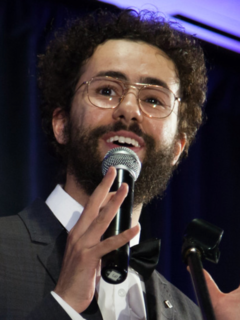Top 62 Quotes & Sayings by Ramy Youssef
Explore popular quotes and sayings by an American comedian Ramy Youssef.
Last updated on April 21, 2025.
We talk a lot about our identities, and we talk a lot about working to clear misconceptions about those identities. But it'd be really cool to see someone like myself not even have to talk about being Muslim or Egyptian, because it's just understood. We can all just be weird and not have to explain everything.
My dad is an amazing human being. He - just a hard worker. Just that thing you think about with, like, just anyone who comes this country - that's my dad. He can do anything. Not just at work - comes home, he can cook, he can clean, fix the toilet, fix the car. He learned all these jobs just so he'd never have to pay another man.


















